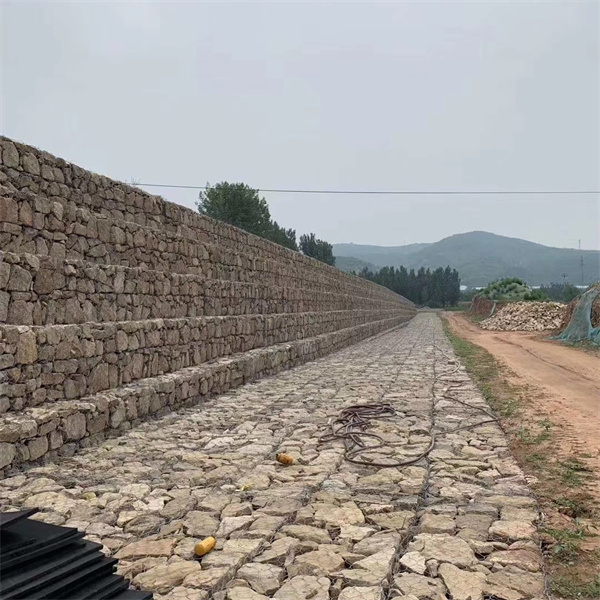Ноя . 24, 2024 10:45 Back to list
standard gabion basket sizes manufacturers
Understanding Standard Gabion Basket Sizes and Manufacturers
Gabion baskets have become increasingly popular in construction and landscaping projects around the world. These wire mesh containers, typically filled with rocks or stones, are renowned for their durability, versatility, and environmental friendliness. As the demand for gabion products rises, understanding the standard sizes offered by various manufacturers is crucial for both professionals and DIY enthusiasts.
What is a Gabion Basket?
A gabion basket is a cage or box made of wire mesh, filled with stones, concrete, or other suitable materials. The primary purpose of gabions is to provide effective erosion control, stabilize soil, or construct noise barriers. They can be used in a variety of applications, including riverbank protection, retaining walls, and decorative landscaping features. Gabion baskets are available in various sizes and shapes, making them adaptable to different projects.
Standard Gabion Basket Sizes
Manufacturers typically produce gabion baskets in several standard sizes, but these can vary slightly depending on the company. The most commonly found dimensions include
1. Standard Rectangular Gabions - Size 1m x 1m x 1m (3.28ft x 3.28ft x 3.28ft) - Size 2m x 1m x 0.5m (6.56ft x 3.28ft x 1.64ft) - Size 2m x 1m x 1m (6.56ft x 3.28ft x 3.28ft)
2. Stackable Gabion Baskets - Size 1m x 0.5m x 0.5m (3.28ft x 1.64ft x 1.64ft) - Size 1.5m x 0.5m x 0.5m (4.92ft x 1.64ft x 1.64ft)
3. Specialty Sizes - Custom sizes tailored to specific project needs are also available from various manufacturers. It's important to consult with the manufacturer for the best dimensions suited for unique applications.
Material and Manufacturing Considerations
standard gabion basket sizes manufacturers

Gabion baskets are typically made from galvanized steel wire or PVC-coated wire for enhanced durability and corrosion resistance. The thickness of the wire used can vary, with common options ranging from 2.0mm to 4.0mm. The choice of material impacts the strength of the gabion, particularly in high-stress applications such as flood control and landslide mitigation.
Moreover, manufacturers often adhere to strict quality standards to ensure their products meet industry guidelines. Compliance with ISO certifications and local regulations is essential, as it reflects the reliability and safety of the materials used.
Choosing the Right Manufacturer
When selecting a manufacturer for gabion baskets, several factors should be considered
1. Reputation Look for manufacturers with a proven track record in the industry. Online reviews and case studies can provide insight into their reliability.
2. Quality Assurance Ensure that the manufacturer employs stringent quality control measures. Certifications indicating adherence to international standards can be a good indicator.
3. Custom Options Some projects may require specific sizes or features. Manufacturers that offer customization can be advantageous, allowing for the creation of tailored solutions.
4. Pricing and Availability Compare prices across multiple manufacturers, but consider the overall value rather than just the cost. Availability of stock and lead times are also important for project planning.
Conclusion
Gabion baskets are an essential component in many construction and landscaping projects, providing stability, durability, and aesthetic appeal. Understanding standard sizes offered by different manufacturers can aid in making informed decisions for your projects. By considering material quality, manufacturer reputation, and custom options, you can ensure you choose the right gabion baskets to meet your needs. As the market continues to evolve, staying informed about innovations and trends in gabion technology will be crucial for optimizing your landscape design or construction efforts.
-
Why PVC Coated Gabion Mattress Is the Best Solution for Long-Term Erosion Control
NewsMay.23,2025
-
Gabion Wire Mesh: The Reinforced Solution for Modern Construction and Landscape Design
NewsMay.23,2025
-
Gabion Wall: The Flexible, Seismic-Resistant Solution for Modern Landscaping and Construction
NewsMay.23,2025
-
Gabion Wall Solutions: The Durable, Decorative, and Affordable Choice for Every Landscape
NewsMay.23,2025
-
Gabion Basket: The Durable and Flexible Alternative to Traditional Retaining Walls
NewsMay.23,2025
-
Gabion Basket: The Proven Solution for Slope Stability and Flood Control
NewsMay.23,2025
-
Versatility of Chain Link Fence Gabion
NewsMay.13,2025






